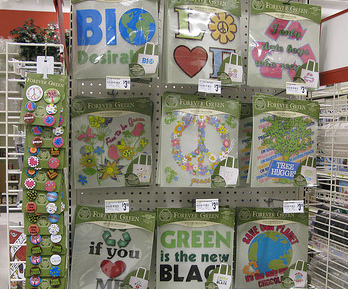When you see the word “compostable” on a product label, do you imagine tossing it in your backyard compost pile and calling it a day? It was easy to read the packaging for Kauai coffee pods meant for use in Keurig single-serving brewers that way, but they could only be composted in a few industrial facilities. Now an ad watchdog has recommended that the company make this distinction clearer to customers. [More]
greenwashing
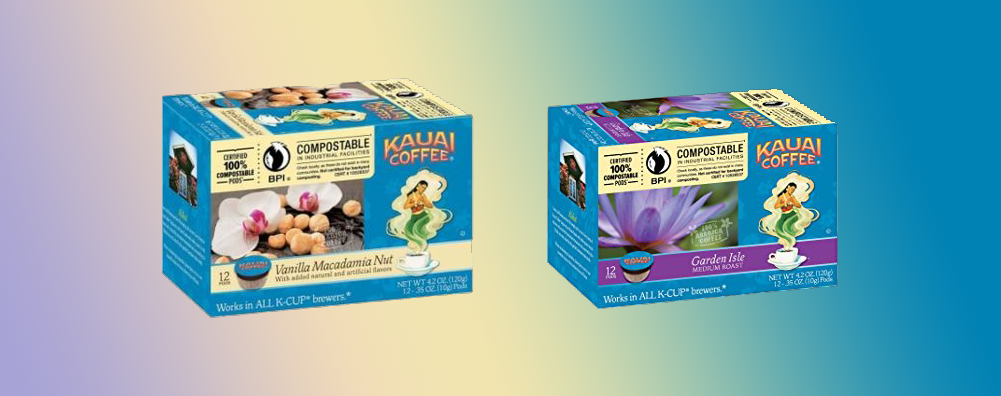
Ad Watchdog: These ‘100% Compostable’ Coffee Pods Don’t Go In Your Backyard Compost Pile
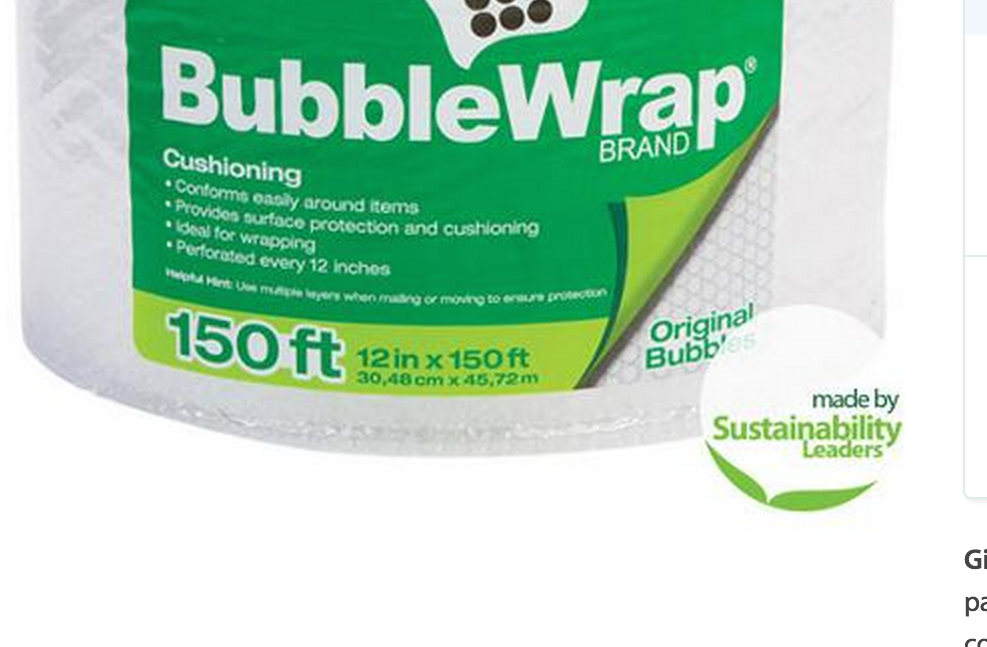
“Sustainability Leader” Badges On Walmart Products Don’t Mean Items Are Good For Environment
If you see a product tagged with a “sustainability leaders” badge on the Walmart website, you might think this is an indication that this item is more environmentally friendly than others. And you might be correct; but you might also be mistaken. Because the truth is that this badge has virtually nothing to do with the product being advertised. [More]
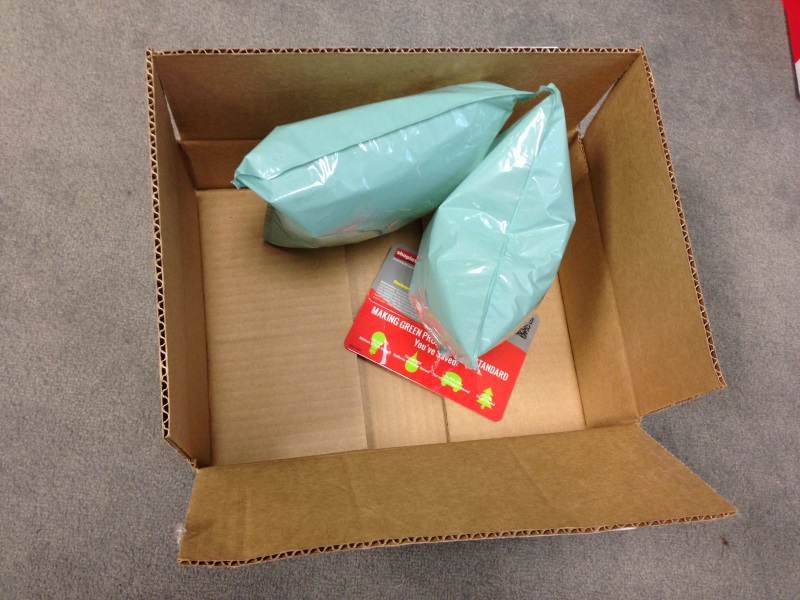
Shoplet Rules The Stupid Shipping Gang Forever, Sends Me Coupon In Box Of Air Pillows
Ed ordered three big (by “big” we mean four feet by six feet) dry erase boards from Amazon.com. They came from a vendor called Shoplet. Everything seemed fine with the transaction until a mysterious box arrived on his doorstep alongside the boards. The box was tiny, unlike the boards. What was inside? Mounting hardware? Extra erasers? Free markers? No. He opened the box and was horrified at what he found inside. [More]
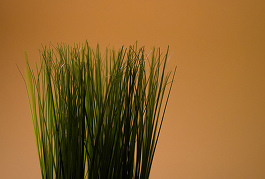
How To Spot Fakes When Shopping For Green Products
If you want to buy environmentally friendly products when you’re out shopping, you’ll find plenty of options these days. The trouble is that “green,” like “organic,” is considered a very loose concept by lots of manufacturers. The Chicago Tribune put together a list of ways you can spot the fakes on your next shopping trip. Here’s an easy rule of thumb: the words eco, earth, green, friendly, gentle and kind are all frequently used to give the impression of being environmentally friendly, but they’re essentially meaningless marketing words. [More]
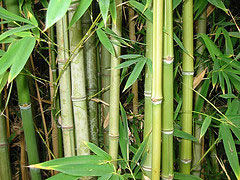
FTC To Retailers: Bamboo And Rayon Are Not The Same Thing
The FTC has sent warning letters to 78 companies about clothing and household products marketed as being made from bamboo. Many of the products were were allegedly made out of rayon that may or may not have originally been derived from bamboo. The offenders include huge names like Walmart, Land’s End, Kohl’s, The Gap, and Target. [More]
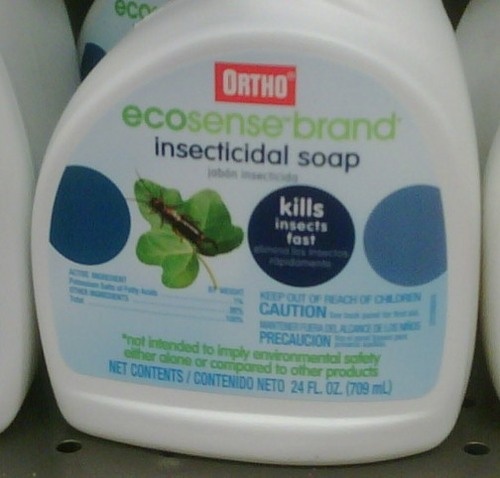
Ecosense Brand Insecticide Not Eco-Friendly, Makes No Sense
Reader Dan came across Ortho’s Ecosense insecticide in the store, and noticed something strange. The name “Ecosense” implies some kind of crunchy environmental friendliness, does it not? Why, it’s even written in green right on the package. So why does the package also have the disclaimer, “not intended to imply environmental safety either alone or compared to other products”?

Ohio Public Utilities Commission Delays Potentially Evil Expensive Light Bulb Program
The Ohio Public Utilities Commission has announced that they are asking FirstEnergy, the utlility company that was going to force its customers to pay $10.80 per light bulb as part of an energy-saving program, to delay the implementation of said program until they can figure out what the %#$& was going on.
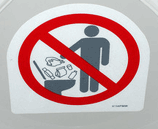
Airline Urges Passengers To Leave Their Urine Behind
In a new and exciting airline cutback effort, an airline is now asking passengers to relieve themselves before getting on the plane in order to decrease passenger weight and save fuel. No, we’re not making this up. And no, it’s not Ryanair.
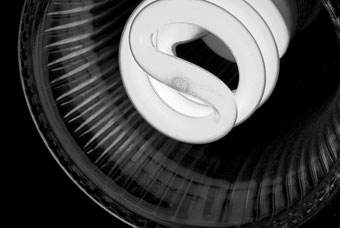
FirstEnergy Forces Light Bulbs On Customers For $10.80 Each
Hey, who doesn’t like to get free stuff from the power company? So it’s awfully nice of Ohio utility FirstEnergy to deliver compact fluorescent bulbs to their customers’ homes. Except for the part where the bulbs aren’t free, and customers are being forced to pay nearly five times the retail price of the bulbs.
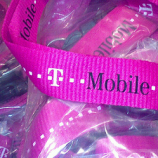
T-Mobile Ends Paper Billing Fee …For Now
Here’s their statement, posted to a T-Mobile web forum. The company’s media relations office confirmed that this is the official statement.

Good Housekeeping's New Green Seal: Not That Green, Actually
Everyone knows the Good Housekeeping seal, which carries a two-year warranty on products that have it and pretty much proves that the product’s manufacturer advertises in Good Housekeeping magazine. Now the venerable publication has a new seal which is supposed to denote environmentally friendly household products and, according to Slate’s Paul Smalera, is at best meaningless and at worst draws consumers’ attention away from actual environmentally friendly products.
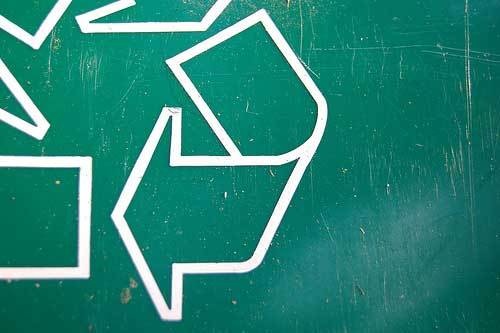
How Can I Tell When A Product Is Being Greenwashed?
Sure, some people want to buy environmentally friendly products, and that’s great. The problem is that marketers understand these impulses well, and want to take advantage of them without always offering products that live up to the claims. What to do? ShopSmart has some answers.
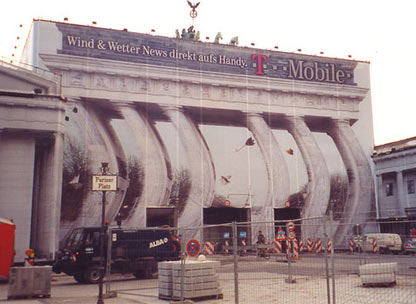
T-Mobile To Charge $1.50 For Paper Phone Bills
If you’re a T-Mobile USA customer who likes to kick it old-school with a paper bill, checks, stamps and whatnot, bad news. Starting September 12, you’ll be charged $1.50 per account for the privilege of receiving your bill by mail.
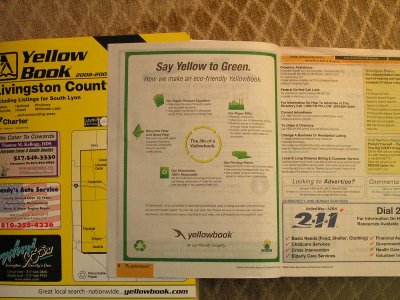
Yellow Book Saves The Earth By Distributing Thousands Of Phone Books With Smaller Print
I don’t use phone books, but I get three different ones delivered to my house every year anyway. Hardly anyone I communicate with even has a landline, let alone a white pages listing, but that doesn’t matter. They still deliver them. Straight into a snowbank.
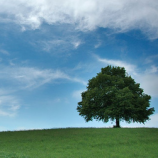
Is Buy.com Friendlier To The Environment Than Brick And Mortar Stores?
A study by the Green Design Institute at Carnegie Mellon University in Pittsburgh states that when comparing getting a flash drive from Buy.com versus a physical retailer, Buy.com ends up being about 30% less damaging to the environment. To reach their conclusion, the researchers compared transportation, packaging, warehousing, and energy usage both by the consumer and the retailer.
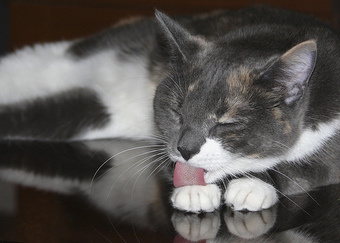
Six D.I.Y. Tips For Cleaning Greenly And Cheaply
Harsh chemicals aren’t just bad for you and the environment, they’re bad for your wallet too. Cleaning most things, from clothes to your kitchen, can be done greenly and cheaply with these six nifty do-it-yourself cleaning recipes from Consumer Reports…
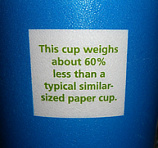
Sam's Club Pretends Its Polystyrene Cup Is Green
Gregg saw this cheerful environmentally-friendly message on the side of his Sam’s Club soda cup. Wait, what? We guess it saves Sam’s Club fuel costs to ship the cups, but that sounds more like a profit-friendly quality. Gregg notes another benefit of the cup: “[it] may never biodegrade but at least it’s easy on my drinkin’ elbow.”


